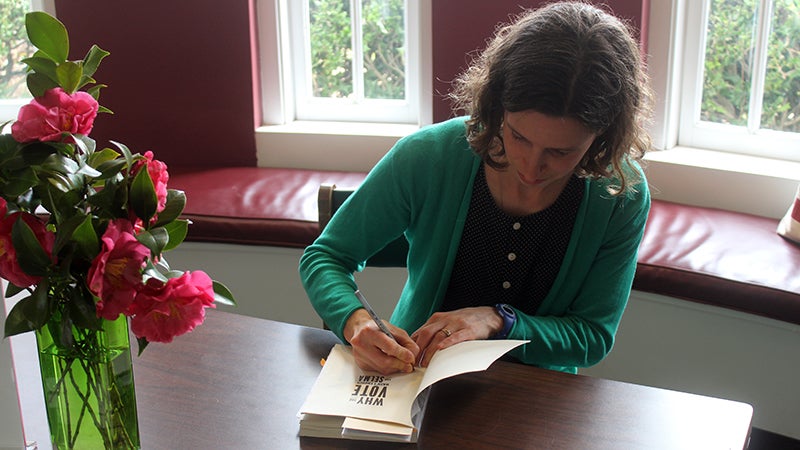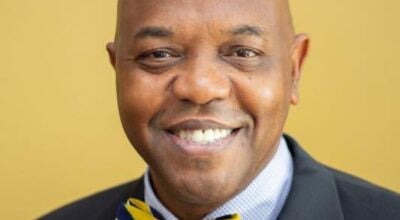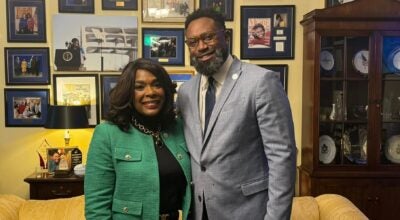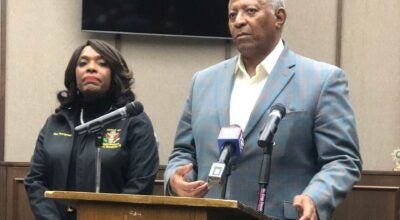Forner’s book explores history of Selma
Published 6:47 pm Thursday, February 7, 2019
On Thursday, for its “Lunch at the Library” event, The Selma-Dallas County Public Library hosted author Karlyn Forner, whose new book, “Why The Vote Wasn’t Enough For Selma,” takes an in-depth look at Selma before and after the Voting Rights Movement.
Forner, a native of Minnesota, first came to Selma as a student at the University of Wisconsin-Madison on a Civil Rights bus tour and visited the Voting Rights Museum.
“That’s what really sparked my interest in Selma,” Forner said. “There’s just something about Selma that spoke to me.”
After graduating, Forner packed up and moved to Selma to volunteer at the Voting Rights Museum before becoming a graduate student at Duke University where she earned her PhD in history.
“I think I thought I was going to grad school to study history,” Forner said. “I really went to grad school to tell a story of Selma.”
Forner’s dissertation was on Selma’s history and the events that led up to and followed the Voting Rights Movement, a historic event that is often the centerpiece of most people’s perspective of the Queen City.
“It was quite a project,” Forner said. “The story of Selma gets told as a moment, but nobody talks about the before or after. You come to Selma and clearly the vote didn’t solve everything. The movement for black citizens was never just about voting rights.”
Forner’s talk at the library was attended by students from Judson College, whose teacher Cheryl Washington said she brought the students, who were studying multiculturalism, to get a unique perspective on Selma’s place in the Civil Rights movement.
“Hopefully they’ll gain a perspective that I can’t give them,” Washington said.
Forner’s research required her to spend hours reviewing 100 years-worth of Selma Times Journal articles on microfilm and interviewing Selma residents.
“There’s no way I could have done this without the support of [the people] here,” Forner said.
Forner’s research and, as a result, her book centers around a handful of pivotal moments that changed Selma and the Black Belt region, though she notes that the story of this region could just as well be the story of any rural area across the country.
“While the story of what’s going on in Selma has a local component, that’s not the only story,” Forner said. “It’s a bigger story about the whole nation. It’s not a happy story. It’s a story about the entire country and failings on a number of levels. It’s a story about all of us.”
Among the moments Forner identified that defined the changes in rural America, specifically Selma, were the New Deal, which displaced scores of tenant farmers when the federal government began paying farmers not to plant cotton, and World War II, which led local leaders to recruit new industries that came to town and offered low paying jobs.
Forner said many of these moves were made to maintain the “status quo” or segregation and allow leaders to retain “white political and economic power.”
Forner described how local leaders were able to maintain an all-white city council, county commission and board of education for decades, creating a “bitter political divide in Selma,” and how the federal government largely allowed rural areas to crumble as it invested in more metropolitan areas, such as the Sun Belt.
To get a copy of Forner’s book, visit www.amazon.com or www.dukeupress.edu. The book is also available to borrow at the local library.






